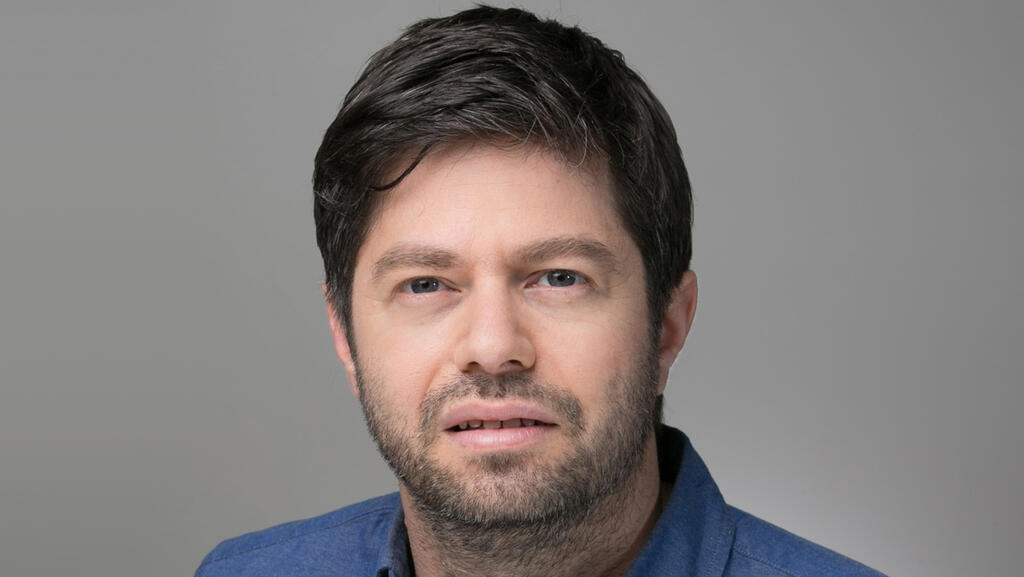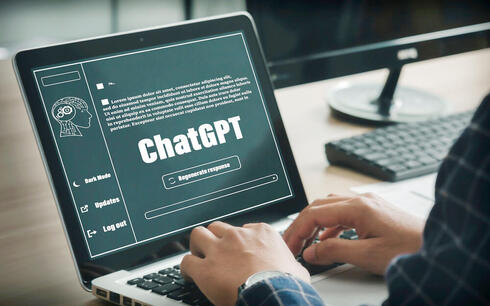
Interview
Extreme Makover: “Generative AI is the most exciting step in AI”
From ChatGPT replacing human writers to Israel’s president’s AI-aided speech, Anyword CEO Yaniv Makover takes CTech on a deep dive into “a super valuable jump in technology”
When conducting an interview with Yaniv Makover, CEO of Anyword, an Israeli startup developing an AI writer that generates high-quality content and copy of all kinds, I feel compelled to assure him that I will be writing the article myself - although he has no objection to AI assistance. In fact, he even welcomes it.
Israel’s President Isaac Herzog boasted that part of the recent speech he delivered at a cyber conference in Israel was written by AI. He is supposedly the first world leader to do so. Is this a trend or merely a gimmick?
“It’s not a gimmick,” Makover says. “I’m sure at some point in time people started using word processors when before that they didn’t and this is like a word processor. So it’s not a gimmick and good for him for using it. If the Israeli president wants to get the words out faster and in a more accurate way, more power to him. AI is the way to go.”
Anyword is a spinoff from Keewee which was originally founded in 2013, while Anyword came into existence in 2021. The company was co-founded by Makover, who serves as CEO, and Adam Habari, who serves as lead engineer. Anyword, which has raised over $33 million to date, is headquartered in New York with offices in Tel Aviv. Of the startup’s 65 employees, 45 are based in Israel. Some of Anyword’s major clients include: Outbrain, AliExpress, Sisense, and Greenhouse.
What does Anyword do for marketers and copywriters?
“Anyword takes the guesswork out of copywriting. Our mission is not just to help marketers create more copy, but better copy. We’ve built AI models that not only write well, but can also predict what text will work better for which audience and goal. For instance, if you’re writing a social post, we can predict out of a thousand variations for that post or tweet which one will have the best engagement.
“The technology behind generation and predicting is the same. It’s like large language models. A large language model can write anything, but it can also really understand text very well. So, you can basically train it to know what’s going to work better.”
Since its release last year, there has been tremendous buzz around OpenAI’s ChatGPT, a chatbot where users ask questions and receive replies and answers from the AI. In just one week it hit one million users. Despite working in the industry for years, Makover admitted to being surprised by ChatGPT's instant success.
“I have to say that it surprised me slightly even though I’ve been going around for the past five years pitching the idea that large language models will basically write or help write most of the marketing text for everyone - and I really believed it - because even before algorithms or the technology was where it is today, I thought this is where it’s going to go. But to see it grow that fast, one million users in a week, I admit that did surprise me.”
Some are suggesting that ChatGPT could be an alternative (at least in part) to Google. What are your thoughts? Will Generative AI kill Google?
“No, I don’t think it will kill Google. People think that Google - or search - is a proxy for answering their questions, but it’s not. If you enter a query into Google it won’t necessarily give you the best answer. It may offer you an adjacent website that people really like and has been found to be helpful. So, Google’s not really trying to solve or answer your question the way a chat could. I see them incorporating a chat feature inside their search engine. Don’t get me wrong, Google will still have a big advantage as they have data that’s not available to a language model. I feel they have a big opportunity to incorporate this technology."
What about the fear many people have that ChatGPT’s wide breadth of functionalities sets a precedent for jobs and roles to be replaced by AI over an actual human - including any ‘creative professional’, like writers and artists?
“Mathematicians don’t fear calculators - and this is a calculator. Initially when the calculator was first invented, yes it might have replaced some people who solely did the long arithmetic and suddenly it was solved by a calculator. But quickly mathematicians universally recognized it as a useful tool. Mathematicians today are defining the equations, not solving them.
“Now a writer, whether writing news or working in marketing, still needs to define what's the message they want to talk/write about. Generative AI is another tool. It will be easier for you as a writer/marketer to get your point across, but you still need to make your point. There’s still a lot of creativity to be had, even if you’re working with AI.”
Education officials are trying to stop students from using OpenAI's ChatGPT. In fact, several school districts have banned the bot, citing fears of plagiarism and false information. Are their fears warranted?
“There used to be a time where you’d have to go to a library and do your research or copy from an encyclopedia but then came the internet and Google search and changed all that. It’s a cat and mouse game when it comes to plagiarism. There are tools to detect if information was taken from the internet and there already tools like that for AI generated text, but it will get harder to detect. The cat and mouse game is still on. The schools and universities are just going to have to understand better what they are looking for. Generative AI is a tool in everyone’s tool box, just like Google is.
“But plagiarism is a real worry - and not just in schools and universities, but also for writers. I can write a book with AI and the main question I have is how do I do it. I have to ask myself, what is my contribution? When do I want the AI to step in and when do I want it to follow my lead? However, besides these fundamental internal questions, there is great danger in the ease that those using AI with bad intentions can plagiarize entire works and put their own name on it. This is a serious problem which needs to be addressed.”
Makover believes Israel is at the forefront of Generative AI technology. "I believe at the application level there are going to be lots of startups - like the move from desktop to mobile - and you’re going to see lots of disruption in customer success, sales, marketing, news, etc. Any analytics and insights company will be able to leverage this type of technology to better explain their insights and I think a lot of known practices will be replaced or changed by this technology.”
For example?
“Well, lawyers for example. Contracts and legal work are going to get cheaper. If you are renting an apartment, AI can generate the contract so you don’t need to hire someone to draw that up for you. But for more complicated things you will still need actual people.”
How would you characterize what’s going on now in the field? Is generative AI the biggest revolution since the dawn of the internet?
“This is the most exciting step in AI so far. This is not hype, it’s a super valuable jump in technology. I don’t know if I’d call it a ‘revolution’, but it’s a very big step in Artificial Intelligence. More primitive versions of the model that ChatGPT is based on have existed for a few years, so the technology didn’t happen overnight, but it developed very fast over the last 2-3 years.
Related articles:
“This is a powerful tool”
When asked about the negative side of the technology, Makover was blunt.
“Look, this is a powerful tool. Just like people or countries misuse computers they can misuse this technology for disinformation. Whatever disinformation you are producing will be more ‘effective’ using AI. But I believe because there is already so much content out there we won’t notice it. From a consumer point of view things aren’t going to change a lot. Content will get better. But from a producer point of view, there might be some misuse, but I don’t think it will be substantial because people who want to disseminate false information don’t need AI to do it.”

